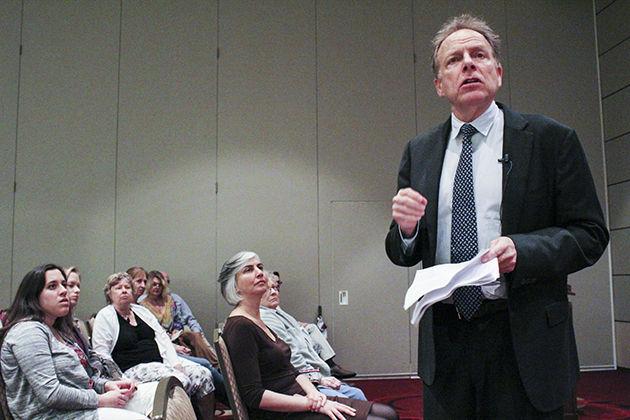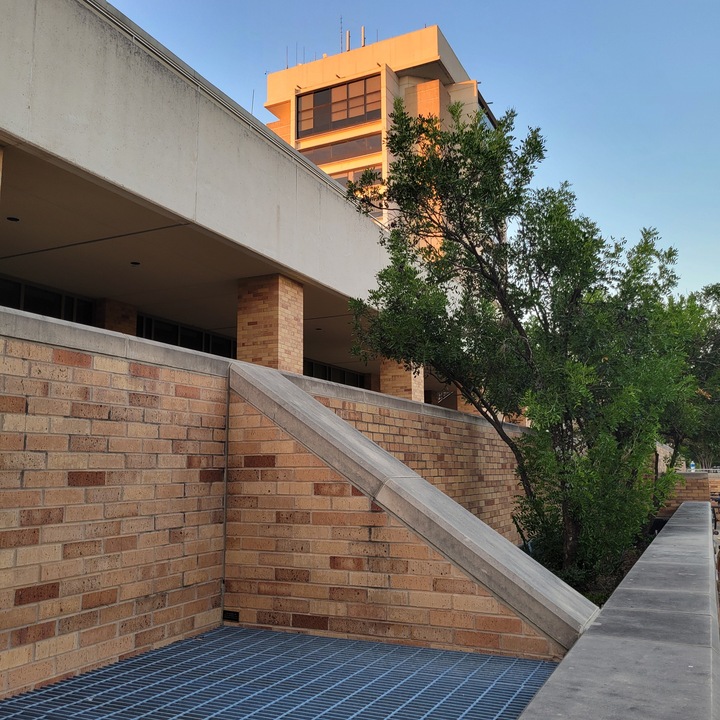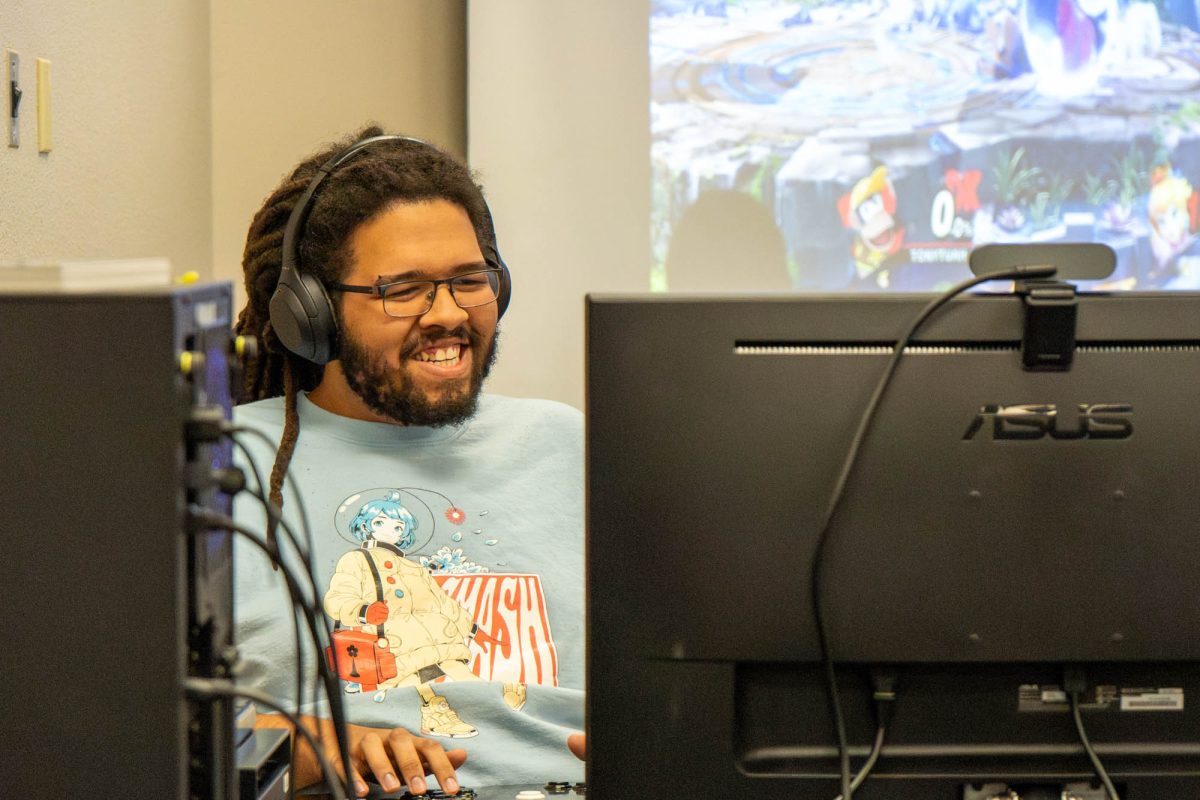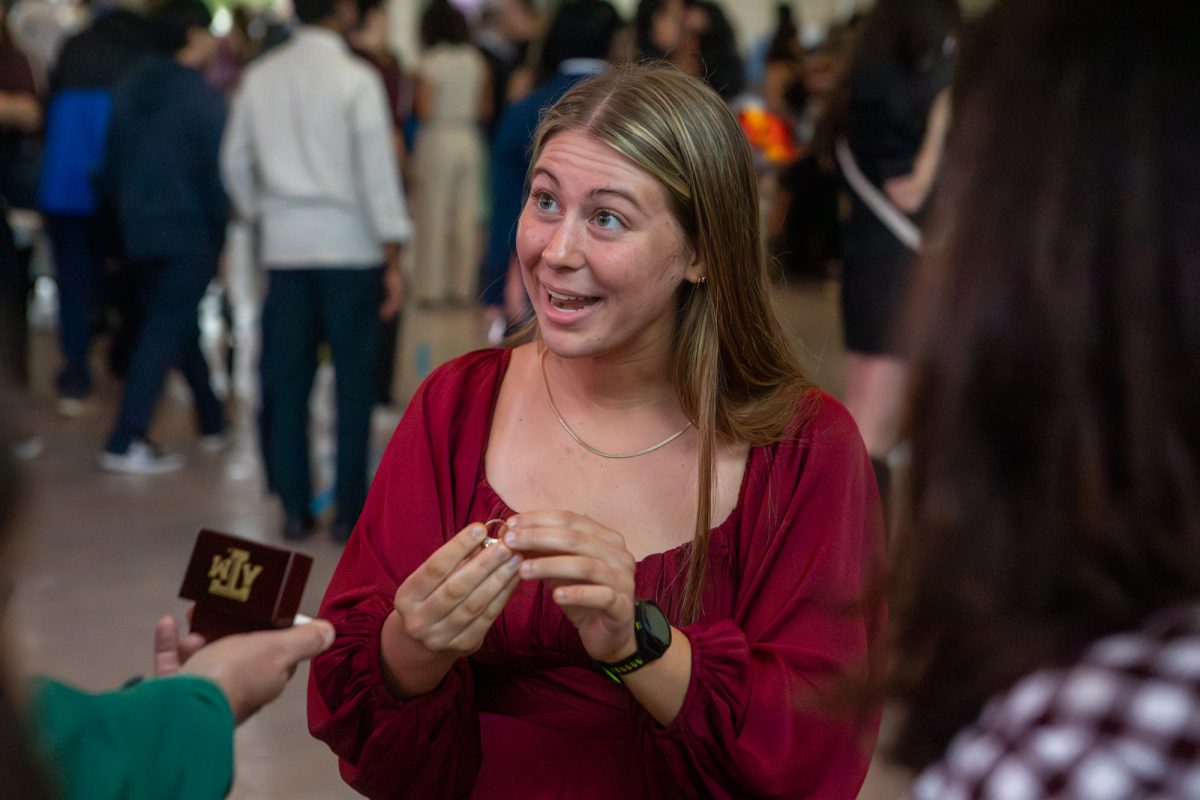From hobnob to cold-blooded, Shakespeare is known for creating over many words in his time. On A&M’s campus Wednesday, a visiting professor explored the significance of one such Shakespearean word with exceptional significance — equivocation.
Dr. James Shapiro’s Wednesday lecture, “Shakespeare, Equivocation, and 1606,” drew upon research related to Shapiro’s most recent book, “The Year of Lear: Shakespeare in 1606.” In the conclusion of the national tour of Shakespeare’s First Folio, Shapiro, professor of English and comparative literature at Columbia University, explained how the concept of equivocation fascinated Shakespeare, illustrating how it could be found throughout his body of work. He explained how before Shakespeare, the word was used only in circles of highly educated men. However, after the plays of Shakespeare, it was a common and popular phrase.
Kevin O’Sullivan, Curator of Modern Literature for Cushing Memorial Library and Archives, said he and his coworkers are elated to have worked with Shapiro.
“Dr. James Shapiro is one of the preeminent scholars working in Shakespeare studies today, and we are delighted to welcome him back to campus for this lecture,” O’Sullivan said.
The lecture explored the times in which Shakespeare lived and what fueled his work. The discussion was mainly concerned with his famous play “Macbeth” and one of its central themes, equivocation. Shapiro related stories from England’s history, such as the ongoing feud between Catholics and Protestants in the early 15th century, the Gunpowder Plot of 1605 and the trail of Jesuit Priest Henry Garnet — all of which were encouragement for a play like “Macbeth” to be written.
Students who attended the lecture found Shapiro’s ideas to be exciting and insightful.
“I thought it was interesting how Dr. Shapiro was able to go into such detail over one word and how it made such an impact on Shakespeare’s time, specifically in 1606,” said Emily Naveria, English and Psychology junior.
As he concluded his lecture, Shapiro expressed a hope for writers like Shakespeare to come forward to comment on the events taking place in modern culture. He then opened the floor for questions. Faculty and students alike inquired over his works and their relevance to his time and similar devices Shakespeare used throughout his writing.
The impact of The First Folio has been felt not just by Texas A&M, but the entire community.
“I have been very excited about students across campus, not just English majors, wanting to help to give tours of the First Folio,” said Laura Estill, assistant professor and editor of the World Shakespeare Bibliography. “I have gotten to meet with people who I would not normally meet through the First Folio, like K-12 teachers in our workshops, book clubs and special faculty and staff.”
Estill said the turnout has been tremendous. Six classes visited the Folio on its first day and over 270 people attended the showing of A Midsummer Night’s Dream this past Monday at the Grand Stafford Theater in Downtown Bryan.
Even after four centuries, the poems and plays of William Shakespeare still find relevance and receive praise, Shapiro said.
“For Shakespeare to live another 400 years, he needs to speak to today’s youth,” Dr. Shapiro said. “Witnessing how many young people are coming out is exciting and encouraging.”










